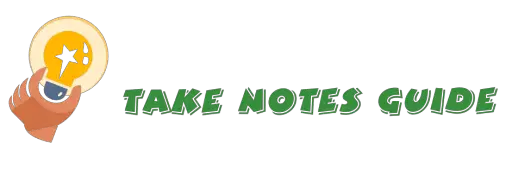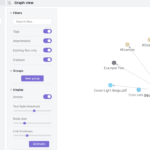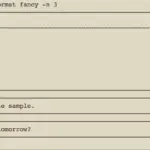Some want to know when best to take notes at a particular time of day or after certain activities, while others it is about when to take notes for certain purposes such as class or meetings. Whatever your pick, read and take the ones most beneficial for you.
10 ideas when should you take notes generally speaking
- To help stay focus on a topic i.e. during class or meeting
- In the morning or sometime after you wake up feeling fresh
- After you take a quick shower or wash your face
- After a light walk or stretching exercises
- When you are clear-headed and in a good mood
- As and when ideas come
- To reflect a topic that you want to frequently refer back i.e. contemplation or memory drill
- To master a large project that requires detailed breakdown i.e. studying a subject, GitHub collaboration project
- For a trivial record i.e. groceries, todos list
- After you drink fruit and vegetable juices or green tea
To know more details, some research studies and related questions please read on. Included below also addresses when should you take notes in class or meetings, how to take notes from the textbook and how to handle burnout…
When should you take notes in class or meetings?
- Listen and understand before taking notes of a substantial point or
- After understanding some ideas and when the speaker pauses or
- After about 10-15 minutes of intent listening or
- After class or meeting is over for summary
How to take notes in class or meeting
- The point here is to understand what the speaker is saying first. Taking notes is secondary or even redundant if one cannot understand the teaching.
- Ways to take notes include after understanding milestones when there is a chance upon the speaker pausing or only after a specified amount of time or end of class or meeting.
- A better way is to visual notes by taking photos and/or record the speaker’s teaching with permission instead.
- It depends on the individuals’ capacity and preference as well. Some people may take little to no notes because of their excellent memory and exceptional understanding in the subject matter, while others can train to be adept at learning quickly new or reviewing materials through a focus on understanding and taking notes in his own style.
Should you take notes before class?
- Prepares you what to expect and know what you may lack beforehand
- Allows you to focus more on understanding instead of just writing or typing
- The class can serve as a review or add-on to your knowledge or fill in the gaps in your topic understanding
- Increase your confidence when class teachings confirm your pre-study notes understanding
Before class or meeting for objectives and expectations
- Taking notes prior to class can be a good start so you know what you should learn or what is missing at the end of it. Those who did not write down their objectives or expectations are unlikely to notice what they should but did not learn. So listen up when you hear related keywords mentioned.
- Find out and write down the objectives and expectations in questions and answer style. Large spaces of white gaps will alert you to possible time spent covering irrelevant, unrelated information or distraction.
- This can be an excellent way to be more effective in time management and productivity.
How to take notes from textbook?
- In less than 1-2 minutes, scan to understand key concept and keywords from one short part of textbook i.e. one paragraph. A study reveals lesser distraction and better effectiveness with note-taking and pressure of time (Wu and Chen 2018)
- Quickly look for and understand any available example
- Decide whether you learned an important point and write it down or take a photo if so
- Continue on to other parts or paragraphs until your next break i.e. every 30 or 45 or 60 minutes.
Benefit of starting out in the morning
Concentration and ideas can come easier in the morning and wanes by nightfall or sleeping time. So be productive and make the best of your study or work in the morning and get the most difficult task done first if possible. Afternoon and night can be easier or leisure activities.
How long should you take notes or study?
- My recommendation is as long as your attention span. This depends on the individual and his capacity for that sitting
- A study research poll found that a British person’s span of attention is 14 minutes on average. Clearly, 14 minutes does not apply to everyone nor every session for each person. The duration you focus also depends on the factors of that day or sitting.
Taking notes for too long?
- Forcing yourself too much beyond is difficult and might even be counter-effective. Why? Because when you take notes like a very strenuous chore, you associate dull and painful boredom to it, and you would not feel like doing it again and want to escape from it.
- The other big problem with taking too many notes in a brief period is burnout. The end of burnout may be marked by new ideas coming and a positive mood to continue.
How to prevent and what is the solution for study burnout?
- Be diligent by taking notes frequently when the attention wanes fast and longer if your attention and mood feel like it. Prevention is better than cure.
- Do not over-stress yourself with unrealistic goals which are not only unattainable but also detrimental to your mental health
- Divide your goal into small, manageable tasks and milestones so you know how much you can and cannot do. Ask for help early on when you cannot cope.
- Always have a good backup plan or two so you do not fret or worry incessantly. Life can be challenging and hard. We have to acknowledge, be realistic about this and keep working hard.
- You should get an ample amount of daily sleep too.
- After burnout, one may take a break hoping it will be over soon
- Another possible way is to engage in another different activity of your liking before returning e.g. going outdoor for a short trip or cabin and enjoy nature’s beauty
Why take notes after quick showers?
- This is one of my top recommendations. Just like light exercises, running water on the skin will improve blood circulation and flow across the whole body.
- Take frequent showers possibly 4-6 a day.
- You may notice a marked improvement in sensation and mood after a shower. Seize this short window of opportunity to research and take notes. This can be a push to get the ball rolling and snowball to a long period of concentration.
- Washing the face and hands can help too
- Those who stare at computer screens for long periods can run clean water over open eyes for a few seconds, like opening your eyes underwater.
What exercise do you recommend?
- Simple and moderate body stretching and rotation
- Leg squats and lifting weights are all good
- Easy and flexible physical activities that can be built up over time to more intensive workouts and jogging that involves heavy breathing.
What juices or type of green tea to drink?
- Juices from apples, grapes, kiwi, cherries, plums, and pears
- Fruits are generally safe and good for health.
- Organic green tea or trusted Japanese Green Tea type such as matcha powdered green tea claimed to have 137x more antioxidants than just green tea brewed.
- A study suggests matcha can cause marginal attention speed and intermittent memory of secondary nature to a small effect. (Dietz and Matthisjs 2017)

Conclusion:
Above are my personal opinions and recommendations. I learned some from elsewhere, for example, the benefits of showers and tea. You may employ any or more to suit your needs. Please test to find out how well it works for you. Even a single action taken in the right direction is better than none.
Be kind and Good luck!
Related Questions
When not to take notes?
- After a heavy meal
- After a heavy workout
- When feeling sleepy, dull or tired
- When you cannot concentrate e.g. negative thoughts
Notes should always be taken in class?
- It depends on the student. Excellent students may only take mental notes because they understand the subject matter well. Students with exceptional memory may also choose not to write notes.
- Many take notes in an attempt to help them focus and for later reviews. I recommend understanding the teachings over anything else, even if that means taking a few to no notes during class.
- Learn an efficient method to take notes that help you focus more on understanding.
- Difficult terms and key diagrams or algorithms should be noted prior to class so you can focus on the live teachings.
- Listen intently to the speaker to learn more effectively. Auditory learning can only happen in a live unrecorded and unstreamed class, so capitalize on learning from a teacher. Listening also forces the student to learn fast.
- Recorded audio teachings and self-recordings can serve as reviews.
Is there any resource to help students grade each other for class and assignments?
Students can review each other engage with their feedback while the teacher has a complete overview at Peergrade. A study claims peer-assisted reflection has better rates of success by as much as 23% (Reinholz 2016).
Any resource for students and supervisor interested in Ph.D.?
How to get a PhD (Affiliate link to Amazon) by Phillips and Pugh.







